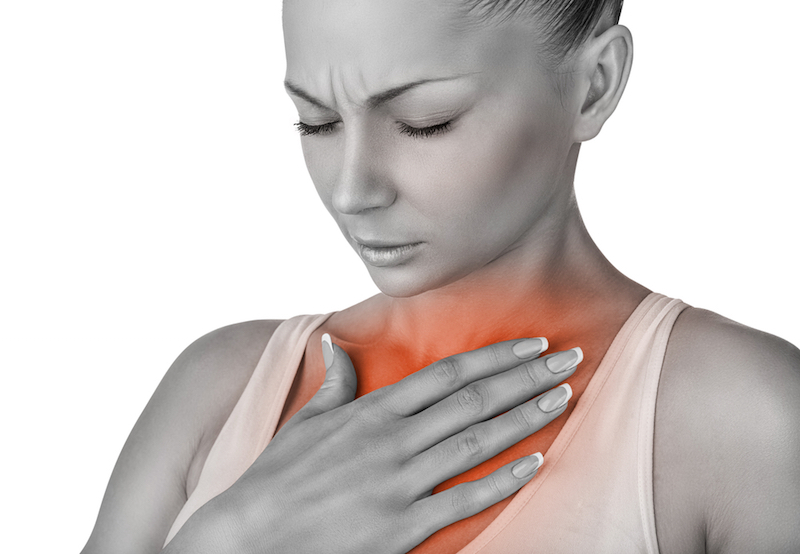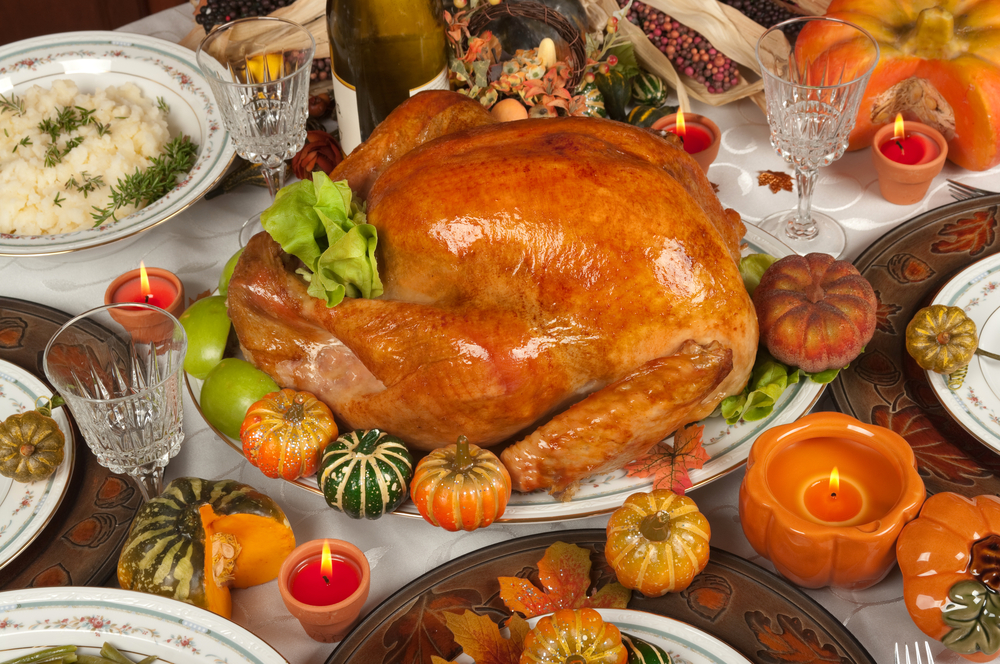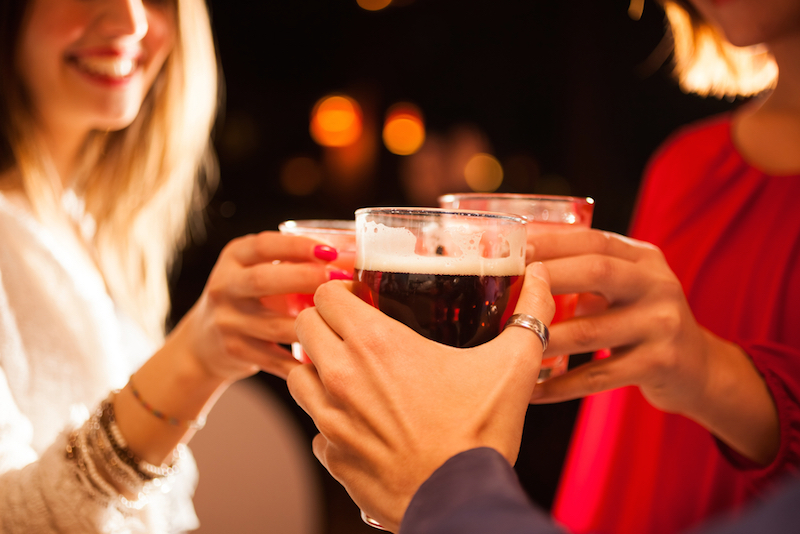7 Tips to Make Thanksgiving More Enjoyable for People with GERD

For many Americans, Thanksgiving revolves around food, family, football and giving thanks. Regardless of whether your Turkey Day features the traditional bird, the feasting is often the main event. But a table filled with large quantities of delicious and tempting foods can make the holiday challenging for people with gastroesophageal reflux disease, also known as GERD, heartburn or acid reflux.
"The primary reason Thanksgiving can be difficult for GERD sufferers is that people tend to overstuff themselves," said Dr. Jacqueline Wolf, a gastroenterologist at Beth Israel Deaconess Medical Center in Boston. People with GERD can get into trouble by eating too much overall, eating too much within a short time and eating bothersome foods that frequently trigger reflux, Wolf said.
Reflux occurs when the contents of the stomach — which may include food, liquid, bile (a digestive liquid) and acid — move up from the stomach into the esophagus. Once there, the acid can cause a burning sensation in the chest.
About 20 percent of Americans suffer from GERD, according to the National Institute of Diabetes and Digestive and Kidney Diseases. Being overweight or pregnant can make people more prone to GERD because excess weight can relax the lower esophageal sphincter, a band of muscle between the stomach and the esophagus. [5 Ways Gut Bacteria Affect Your Health]
The main culprits on Thanksgiving for people with GERD can be fatty foods, which can slow the emptying of the stomach into the intestines, placing more pressure on the lower esophageal sphincter, and alcohol, which can promote reflux, Wolf told Live Science.
To prevent the holiday from becoming a heartburn day, keep the following seven tips in mind.
Stick with smaller portions.
Get the world’s most fascinating discoveries delivered straight to your inbox.
It's not a good idea for people with GERD to skip breakfast and lunch, and then fill their stomachs at dinner until they can't get up from the table, said Dr. Jordan Josephson, an ear, nose and throat doctor and sinus specialist at Lenox Hill Hospital in New York City who treats people with GERD.
People with acid reflux should not only watch out for the kinds of foods they eat, but also limit the quantities of the foods they eat, Josephson told Live Science. Rather than putting as much food as possible on the plate and winding up feeling bloated and uncomfortable, have smaller portions or use a smaller plate to avoid overeating, he suggested.
On Thanksgiving, have a small breakfast and lunch, and eat small portions slowly at dinner, Josephson said. It's better to avoid feeling stuffed and enjoy leftovers the next day than to eat too much in one sitting, he said.
Know your food triggers.
Common GERD triggers include onions, garlic, fatty or fried foods, citrus fruits, caffeine, alcohol, mint and tomatoes, but triggers can vary among people with the condition. Steer clear of any known offenders, or consume very small portions of them to see if they are bothersome, Wolf said.
Many stuffing recipes call for onions and garlic, which may aggravate symptoms, as can fatty foods — so stuffing with sausage or bacon in it is a double whammy. Other common culprits include string-bean casseroles, which may have fried onions; sweet-potato sides, which may contain acidic fruits such as orange or pineapple or have loads of butter mixed in; and mashed potatoes, which also often contain a lot of butter. Some homemade cranberry sauces often call for oranges, and gravies are often made from turkey pan drippings plus additional fat, so they could be irritating.
Go easy on the booze.
Alcohol can make some people's reflux act up by relaxing the lower esophageal sphincter muscle, Josephson said. The carbonation in sodas, seltzers and other fizzy drinks can also leave people with GERD feeling bloated. [Thanksgiving Gallery: 8 Fascinating Turkey Facts]
Having water with meals helps to dilute stomach acid and improve digestion, Josephson said. Drink plain water, or flavor it with a splash of juice that's not from a citrus fruit, such as cranberry or grape.
Skip caffeine at dessert.
Don't finish off the meal with coffee, cappuccino, coffee, mint tea or even an after-dinner mint, because all of those can give a person reflux, Wolf said. Caffeine is in colas, teas and chocolate as well. The best bet for dessert may be a small slice of apple pie, but keep it plain, and avoid topping it with ice cream or whipped cream.
Use antacids.
If someone does get postmeal heartburn, he or she can take an antacid — such as Tums, Mylanta or Maalox — to relieve it, Wolf said.
Resist the postmeal nap.
Although people may feel drowsy after Thanksgiving dinner, it's probably not because of the tryptophan, an amino acid, found in turkey, as some people believe. Sleepiness is more likely to be caused by the carbohydrates, like those in the stuffing, cornbread and mashed potatoes, and also the alcohol, consumed on Turkey Day. But avoid reclining or taking a short snooze right after eating a big meal, because a horizontal position can promote reflux.
If possible, start the Thanksgiving meal earlier in the day, to allow 3 to 4 hours between a person's last meal and bedtime, Josephson told Live Science.
Take a walk.
Walking before and after eating — provided the weather and daylight cooperate — helps to enhance digestion and get the bowels moving, Josephson said. It's also a good way to spend time relaxing and catching up with family. Holidays should be fun times, and they don't have to be unhealthy or leave people feeling uncomfortable, he said.
Follow Live Science @livescience, Facebook & Google+. Originally published on Live Science.
Cari Nierenberg has been writing about health and wellness topics for online news outlets and print publications for more than two decades. Her work has been published by Live Science, The Washington Post, WebMD, Scientific American, among others. She has a Bachelor of Science degree in nutrition from Cornell University and a Master of Science degree in Nutrition and Communication from Boston University.




